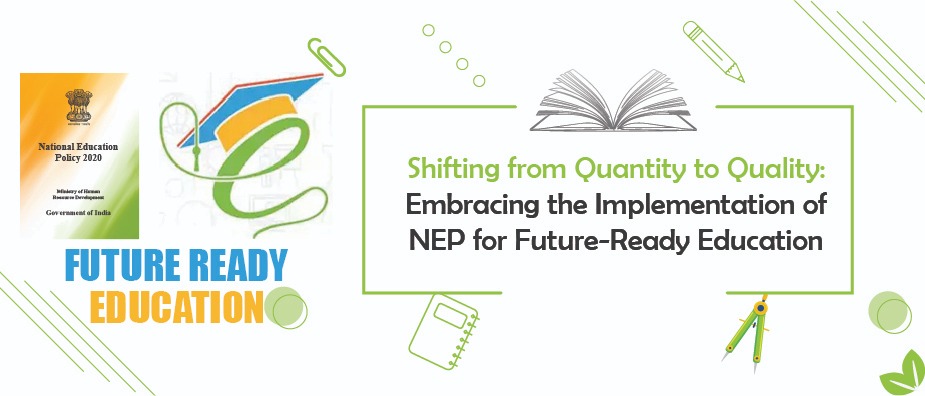Shifting from Quantity to Quality: Embracing the Implementation of NEP for Future-Ready Education
In the pursuit of educational excellence, it is imperative to shift our mindset from prioritizing the quantity of learning to emphasizing the quality of learning. This blog explores the need for stakeholders – schools, teachers, and parents – to embrace the implementation of the National Education Policy (NEP), recognizing that while it may require taking a step back initially, it will ultimately pave the way for students to receive a quality education aligned with 21st-century challenges and India's vision of becoming the 'Vishwaguru.'
In today's fast-paced world, the emphasis on quantity often overshadows the importance of quality in education. However, with the advent of NEP, there is a growing recognition of the need to prioritize the quality of learning experiences over the sheer volume of content covered. This shift requires stakeholders to reevaluate their approach to education, focusing on meaningful learning outcomes, holistic development, and skill acquisition rather than simply ticking off boxes on a syllabus.
Implementing NEP may initially pose challenges for schools, teachers, and parents accustomed to traditional methods of education. However, embracing this change is essential for preparing students for the complexities of the 21st century and beyond. While it may require taking a step back and reevaluating existing practices, the long-term benefits of providing students with a quality education far outweigh the temporary inconveniences.
By prioritizing quality education aligned with NEP, stakeholders are not only equipping students with the knowledge and skills needed for academic success but also preparing them to become future leaders and global citizens. This approach emphasizes cross-curricular learning, holistic development, and skill acquisition, ensuring that students are ready to navigate the challenges of a rapidly changing world. India's vision of becoming the 'Vishwaguru' hinges on the development of its youth, and by focusing on quality over quantity, we are laying the groundwork for a brighter future.
In conclusion, the shift from quantity to quality in education is imperative for preparing students for the demands of the 21st century. By embracing the implementation of NEP and prioritizing meaningful learning experiences, stakeholders can empower India's youth to become future-ready leaders who will propel the nation towards its vision of becoming the 'Vishwaguru.' While the transition may pose initial challenges, the long-term benefits of providing students with a quality education far outweigh the temporary setbacks, ensuring a brighter future for generations to come.

